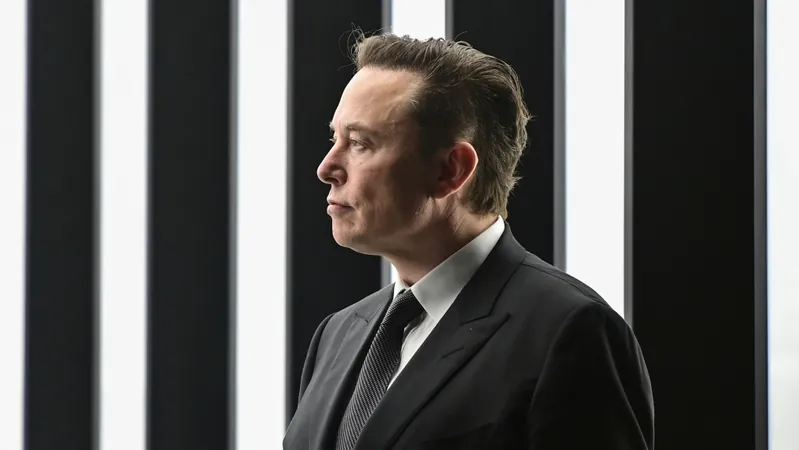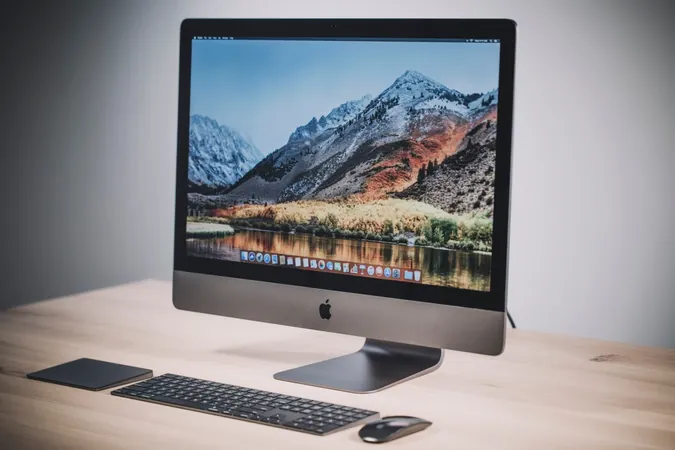
Canadian Neurosurgeons Partner with Neuralink to Pioneer Groundbreaking Brain Study
2024-11-24
Author: Benjamin
TORONTO -
In an exciting breakthrough for medical technology, Canadian neurosurgeons have received the green light from Health Canada to recruit six patients suffering from paralysis for a pioneering trial in collaboration with Elon Musk's Neuralink. This innovative trial, known as CAN-PRIME, aims to test a state-of-the-art device that enables individuals to control digital cursors using their thoughts.
Neuralink made headlines this week by announcing its successful acquisition of regulatory approval from Health Canada. Interestingly, the company has already implanted two similar devices in patients in the United States, showcasing a commitment to advancing neurotechnology.
The initiative is spearheaded by Dr. Andres Lozano, a Toronto-based neurosurgeon at the University Health Network. Lozano, who was approached by Neuralink directors about a year ago, attributes his selection for this groundbreaking project to his extensive experience with various brain implant technologies. “Our entire team was eager to be part of this transformative trial,” Lozano stated confidently.
The CAN-PRIME trial will employ a sophisticated robot, weighing two tons, to implant 64 electrodes—each featuring 16 contacts—into the motor areas of patients’ brains specific to hand movement. The ambitious goal is for these electrodes to capture brain activity, allowing patients to control devices simply by thinking about the desired movements.
To qualify for this revolutionary study, participants must be individuals with severe quadriplegia resulting from conditions like amyotrophic lateral sclerosis or spinal cord injuries. The surgeries will take place in Toronto, and participants will have the opportunity to use the technology in the comfort of their homes. Dr. Lozano hopes to commence the trials in early 2024.
Neuralink's innovative technology is designed not only for implanting electrodes but also for decoding the resulting signals. While the company oversees data analysis, Dr. Lozano and his team will manage patient selection and ensure surgical safety and health monitoring throughout the study.
Of course, any surgical procedure presents risks, and Lozano has acknowledged that complications such as brain bleeds, infections, or malfunctioning wires could arise. A recent incident highlighted by Neuralink involved wires inadvertently pulling out of place in one patient—a known issue within the company, suggesting the need for vigilance in the trial's execution.
Despite some challenges ahead, expertise like that of Brad Wouters, executive vice president of science and research at University Health Network, suggests the technology is still several years from public availability. Nevertheless, Wouters acknowledges Musk's track record for rapid advancements in technology.
While the primary focus of this research is on interpreting brain activity, Dr. Lozano suggests tantalizing possibilities for "writing" information to the brain, potentially aiding individuals with visual impairments. However, he also stressed the importance of putting stringent safeguards in place, as concerns loom over potential misuse of such powerful technology. Issues of hacking, where unauthorized entities could manipulate thoughts or gain insights into individuals’ minds, pose considerable ethical and security challenges.
Despite the daunting obstacles, the CAN-PRIME trial represents a remarkable leap forward in the realm of neural technology. This groundbreaking endeavor might just change the lives of many who have long awaited such revolutionary advances in medical science. Stay tuned as we keep you updated on this fascinating journey into the future of brain-computer interfaces!









 Brasil (PT)
Brasil (PT)
 Canada (EN)
Canada (EN)
 Chile (ES)
Chile (ES)
 España (ES)
España (ES)
 France (FR)
France (FR)
 Hong Kong (EN)
Hong Kong (EN)
 Italia (IT)
Italia (IT)
 日本 (JA)
日本 (JA)
 Magyarország (HU)
Magyarország (HU)
 Norge (NO)
Norge (NO)
 Polska (PL)
Polska (PL)
 Schweiz (DE)
Schweiz (DE)
 Singapore (EN)
Singapore (EN)
 Sverige (SV)
Sverige (SV)
 Suomi (FI)
Suomi (FI)
 Türkiye (TR)
Türkiye (TR)